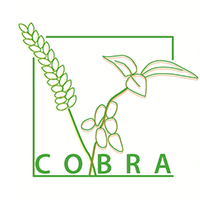COBRA: Final results about organic breeding presented at conference
The COBRA (Coordinating Organic plant Breeding Activities for Diversity) project has been linking up efforts in organic breeding activities in both cereals and grain legumes. The final results of the CORE Organic II project were presented in Denmark with participation from 17 different countries.

Breeding of plant material adapted for organic agriculture is important in order for plants to cope with stresses such as climate change, weeds and seed borne diseases. Conventional varieties may not meet the specific needs of organic agriculture. The use of plant material adapted to conditions of organic agriculture will have a positive effect on the productivity and sustainability of organic crop production.
The COBRA (Coordinating Organic plant Breeding Activities for Diversity) project has been linking up efforts in organic breeding activities in both cereals and grain legumes. COBRA has been focusing on four major arable crops: wheat, barley, pea and faba bean.
The project has dealt with:
- seed health
- response of crops to multiple stresses
- improvements in breeding efficiency for organic systems
- structural issues such as funding for breeding and the regulatory framework
- networking and coordination
The COBRA final conference took place on 24th and 25th November as part of the Danish Organic Congress. The Danish Organic Congress was attended by more than 800 participants, and a great deal of knowledge exchange took place.
Final COBRA results presented
Final results were presented at the conference, a few of them is mentioned here:
- Resistance to seed borne diseases has been investigated in several studies and Johannes Ravn Jørgensen showed that spectral imaging is a promising tool for evaluation of fusarium resistance.
- Simulation of extreme climate conditions has shown a general decrease in grain and protein yield under future conditions, but accessions of spring barley with valuable traits for a future climate has been identified in studies presented by Rikke Bagger Jørgensen.
- Odette Weedon gave insight into the cycling populations experiments. Composite cross populations showed high resistance to a new yellow rust race and outperformed references during drought stress.
- Paolo Annicchiarico illustrated that bulk breeding in peas is better to produce higher yielding lines and is less expensive than single seed decent breeding.
- Regine Andersen emphasized that breeding for diversity and breeding for conformity represents different breeding aims, and that there is a need to ensure legal space for both and that farmer’s rights are important in order to enable farmers to contribute to the protection of genetic diversity.
- Isabelle Goldringer stated that the involvement of multiple stakeholders in plant breeding can increase system resilience.
- Bruce Pearce gave insight to the temporary marketing experiment in cereal populations.

Participants at the final conference in COBRA
Presentations from the conference:
WP 1 - summary of achievements
WP 2 - summary of achievements
WP 3 - summary of achievements
WP 4 - summary of achievements
WP 5 - summary of achievements
Read more about COBRA and visit coreorganic2.org
Go to publications on Organic Eprints
About CORE Organic II:
The COBRA project is funded by funding bodies in the ERA-NET CORE Organic II. CORE Organic is the acronym for "Coordination of European Transnational Research in Organic Food and Farming Systems".
See more at: www.coreorganic.org. The network is coordinated by ICROFS.